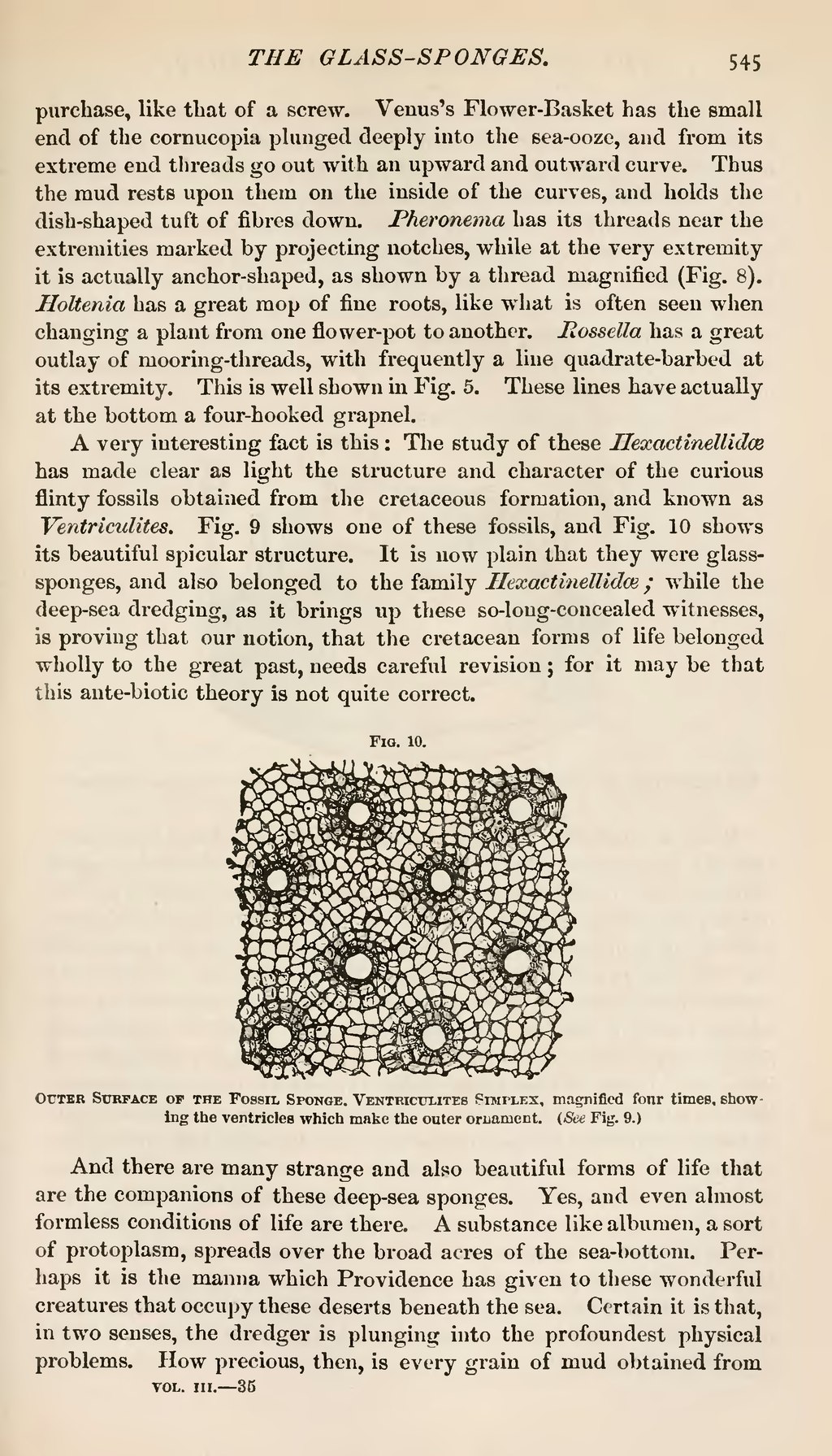purchase, like that of a screw. Venus's Flower-Basket has the small end of the cornucopia plunged deeply into the sea-ooze, and from its extreme end threads go out with an upward and outward curve. Thus the mud rests upon them on the inside of the curves, and holds the dish-shaped tuft of fibres down. Pheronema has its threads near the extremities marked by projecting notches, while at the very extremity it is actually anchor-shaped, as shown by a thread magnified (Fig. 8). Holtenia has a great mop of fine roots, like what is often seen when changing a plant from one flower-pot to another. Rossella has a great outlay of mooring-threads, with frequently a line quadrate-barbed at its extremity. This is well shown in Fig. 5. These lines have actually at the bottom a four-hooked grapnel.
A very interesting fact is this: The study of these Hexactinellidæ has made clear as light the structure and character of the curious flinty fossils obtained from the cretaceous formation, and known as Ventriculites. Fig. 9 shows one of these fossils, and Fig. 10 shows its beautiful spicular structure. It is now plain that they were glass-sponges, and also belonged to the family Hexactinellidæ; while the deep-sea dredging, as it brings up these so long-concealed witnesses, is proving that our notion, that the cretacean forms of life belonged wholly to the great past, needs careful revision; for it may be that this ante-biotic theory is not quite correct.
Fig. 10.

Outer Surface of the Fossil Sponge. Ventriculites Simplex, magnified four times, showing the ventricles which make the outer ornament. (See Fig. 9.)
And there are many strange and also beautiful forms of life that are the companions of these deep-sea sponges. Yes, and even almost formless conditions of life are there. A substance like albumen, a sort of protoplasm, spreads over the broad acres of the sea-bottom. Perhaps it is the manna which Providence has given to these wonderful creatures that occupy these deserts beneath the sea. Certain it is that, in two senses, the dredger is plunging into the profoundest physical problems. How precious, then, is every grain of mud obtained from
